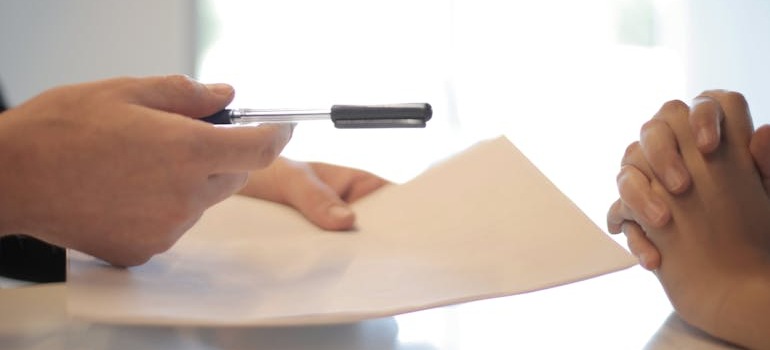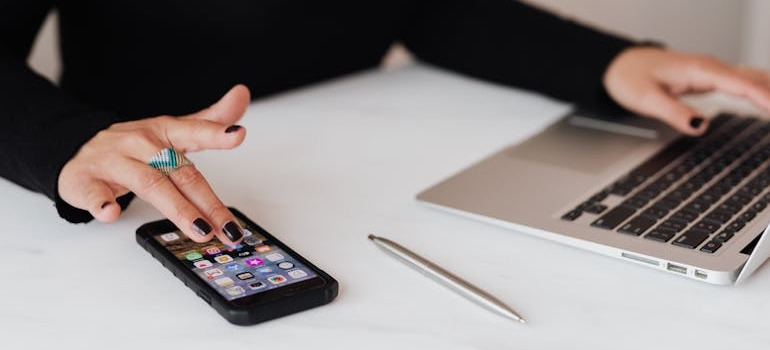Addiction treatment is not easy to navigate. That’s because there are plenty of details that you need to take care of. Privacy is one of those important things to consider. That’s why we at Harmony Ridge Recovery Center want to go over how to keep your privacy in addiction treatment. Check out the ways to keep your privacy secure.
Understanding privacy in addiction treatment
You absolutely need to keep your privacy in addiction treatment as it can help you keep it stress-free. However, there are also plenty of important reasons why that’s the case. Let’s go over just some of them.

What is the concept of privacy in a treatment setting?
In addiction treatment, privacy refers to more than just protecting your private information. Above all, it is about establishing a safe space where you can concentrate on your recovery without worrying that your private information leaks. This security covers the preservation of your treatment plans, medical history, and any anecdotes or struggles you choose to disclose. Treatment facilities, like drug rehab WV has to offer, that uphold stringent confidentiality policies promote patient-provider trust in addition to adhering to legal and ethical requirements. Sincerity and transparency are essential for successful treatment and recovery. Therefore, maintaining anonymity in addiction treatment is essential to creating a safe, accepting environment where you can strive toward a better future.
Importance of privacy
To create a safe and trusting environment where people can openly express their challenges, maintaining privacy is essential. Patients of alcohol rehab centers in VW are more honest with their therapists when they are aware that their talks and private information are secure. Since it enables a more precise needs assessment and the creation of a customized treatment plan, this openness is crucial for effective treatment. Furthermore, when people are confident in the privacy of their conversations, they have fewer worries, which promotes personal development.
Some common privacy concerns
Many people having long term drug rehab WV residents trust worry about a variety of privacy issues. Those include who can access their treatment records and whether or not their personal data will be available without authorization. They frequently worry about the possibility of third parties—such as employers, insurance companies, or even friends—gaining access. Concerns exist over the security of discussions with healthcare practitioners as well. These worries emphasize how crucial it is to make sure that treatment facilities put strong privacy safeguards in place, like safe record-keeping systems and stringent confidentiality guidelines.
Legal and ethical protections to keep your privacy in addiction treatment
There’s also a legal side when it comes to privacy in treatment. It’s not something to overlook as it can be very helpful to you. Here are some things that you want to know when it comes to the legal and ethical side of privacy in treatment.

Some legal protection that is available to you
Rules such as the Health Insurance Portability and Accountability Act (HIPAA) provide strong protections for patient privacy in addiction treatment. Treatment facilities must adhere to strong confidentiality requirements as a result of these limitations. These ensure that your personal and medical information is securely stored and protected from unauthorized access. For instance, HIPAA requires healthcare providers to obtain your consent before sharing any information, implement secure data handling protocols, and limit access to your information to those who are directly involved in your treatment. These legal measures will reassure you that your privacy is secure.
Confidentiality policies
These regulations require the adoption of safe techniques for information sharing and storage, include secure, access-controlled facilities and encrypted electronic documents. Employees are taught to handle all information discreetly and to adhere to procedures that prevent unwanted access. This entails protecting against data breaches and making certain that any correspondence containing your personal information is carried out via secure channels. Treatment facilities respect legal and ethical norms by following these confidentiality regulations. That can give you peace of mind when it comes to privacy.
Ethical standards
Professionals in addiction treatment are dedicated to maintaining the highest ethical standards, which are essential for safeguarding your privacy. Your medical and personal information must be kept private in accordance with these standards, and professionals must only share it when it is absolutely required for your treatment. This implies that only other members of your treatment team who require it to deliver quality care will be privy to your information. Even then, only with your permission. In order to protect your privacy throughout your treatment process, ethical rules also mandate that any information sharing be carried out with careful adherence to confidentiality protocols. This dedication to moral behavior promotes a therapeutic atmosphere that is helpful and trusting.

Some practical tips to keep your privacy in addiction treatment
Of course, we want to provide you with some assistance. And what better way to keep your privacy in addiction treatment than to have some tips that can be of help? Whether you have group therapy for addiction or have more of a personal treatment, here are some of them, including:
- Choosing the right facility
- Understanding your rights
- Having secure communication
- Avoiding unwanted attention
- Handling personal information
- Securing personal devices
- Monitoring your digital footprints
- Using anonymity
- Discussing all potential privacy concerns
Choosing the right facility
Selecting the appropriate cocaine rehab is essential to preserving your privacy while receiving addiction treatment. Seek out a facility that has a solid track record of upholding strict ethical guidelines and reliable confidentiality procedures. Make sure the treatment facility is open and honest about its privacy policies. Make sure that their employees are properly taught confidentiality rules and that they utilize safe techniques for both storing and transferring data. Ask about their protocols for consent and information sharing as well to be sure that your information will only be disclosed when absolutely required and with your express approval. A facility that places emphasis on these elements will offer a more secure and safe setting for your recuperation.
Understand your rights
Knowing your rights to confidentiality and privacy is crucial when choosing a marijuana rehab center that you can trust. Ask explicitly about the facility’s privacy policy and the measures taken to safeguard customer data. A respectable clinic has to have clear procedures in place to protect your private information and health records. Inquire about their information security procedures, such as access controls and encryption techniques, and make sure they follow all applicable privacy laws. Additionally, request information on how they handle breaches and unauthorized access, and clarify how your consent is obtained for sharing any details. Understanding these aspects will help you choose a treatment center that respects and upholds your privacy throughout your recovery process.
Secure communication
Understanding your rights is fundamental to maintaining your privacy in addiction treatment. When communicating with your West Virginia heroin rehab, ensure that you use secure channels to protect your sensitive information. This includes utilizing encrypted emails or secure messaging platforms that offer robust protection against unauthorized access. Confirm with your treatment center what secure communication methods they support and adhere to their guidelines for digital interactions.

Avoiding unwanted attention
Think carefully before sharing any information with family or friends in order to protect your privacy while being in fentanyl rehab centers of your choice. Establishing boundaries about what information is available can help prevent potential confidentiality breaches. To make sure your loved ones respect your limits, talk to them about privacy expectations and keep discussions about your treatment to broad topics rather than specifics. By carefully managing the information you share and maintaining discretion, you protect your privacy and create a more controlled environment for your recovery, minimizing the risk of sensitive information becoming exposed to unintended parties.
Handling personal information
Handling personal information with care is crucial to maintaining your privacy during addiction treatment. Be cautious about sharing sensitive details regarding your treatment, and keep personal documents, such as medical records and identification, secure and private. Store these documents in a safe place, and avoid discussing any specifics about your treatment in public. When discussing your treatment, choose private, secure environments and consider using safe communication methods. By being vigilant about where and how you share information, you reduce the risk of exposure and ensure that your privacy is safe throughout your recovery process.
Secure personal devices
You must encrypt your personal equipment in order to maintain your privacy while undergoing addiction treatment. Ensure that all of your devices, such as computers, tablets, and smartphones, have strong, one-of-a-kind passwords or biometric locks like fingerprints or facial recognition. This additional security step helps to protect against access to your personal information. To further protect your data, make sure to use features like automatic locking and encryption and to change your passwords on a regular basis. By adopting these safety measures, you lower the possibility that private information leaks.
Monitor your digital footprints
Keeping an eye on your digital footprint is essential to protecting your privacy while receiving addiction treatment. Because social media and public forums can unintentionally reveal your private information, exercise caution when sharing sensitive or confidential information regarding your treatment there. Make sure your digital accounts’ privacy settings will be to restrict access to your data by reviewing and updating them on a regular basis. This entails changing the preferences on all of your internet services, including social media and email accounts. You can safeguard your privacy and create a safe atmosphere for your recovery by being aware of your online presence and managing who has access to your information.

Use anonymity when possible
When participating in group activities or support groups during addiction treatment, consider using a pseudonym. This tactic protects your identity and lets you stay anonymous, which is beneficial in larger gatherings where maintaining secrecy can be more difficult. You can share and participate in discussions under a pseudonym without disclosing your true name or any particular personal information. Additionally, only divulge personal information that is required for your participation in this activity. This approach not only helps protect your identity but also contributes to a more secure and supportive environment for your recovery.
Discuss all potential privacy concerns
It is important to discuss any issues you may have with your treatment provider directly if you are worried about how your privacy is protected while receiving addiction treatment. Speaking candidly about your privacy issues enables you to express any specific problems you may have and guarantees that you are aware of the safeguards in place to protect your information. Your supplier must be prepared to speak candidly about their privacy practices, including how they manage and preserve private information and any procedures for information exchange. In addition, they ought to listen to any particular concerns you have and collaborate with you to find solutions, all the while protecting your privacy as you receive therapy. Building a safe and trustworthy therapy environment is facilitated by effective communication between you and your partner.
Tips for emergency situations
If you believe your privacy is in danger, it is important to notify your treatment center immediately. Prompt reporting allows the center to follow its established protocols for addressing privacy breaches and taking corrective action. The majority of treatment facilities have protocols for managing such events. You can guarantee that the problem is promptly fixed and that precautions are taken to avoid similar breaches by notifying them as soon as possible. Speaking with your provider about the occurrence can also reassure you and explain the process, which can bolster your confidence in the course of treatment and your sense of security.
Common scenarios in these cases
Group treatment sessions are typical examples of circumstances where privacy issues may surface. For example, you should talk to your therapist about any concerns you have about confidentiality in a group environment. Inquire about the procedures taken to protect your information, maintain confidentiality, and guarantee that information shared in the group stays in the group. Find out about the procedures for managing any possible data breaches or leaks. Gaining an understanding of these processes might reassure you and make you feel more comfortable taking part. Making these points clear can also assist guarantee that everyone in the group is dedicated to protecting one another’s anonymity and privacy.

Approach addiction treatment without worrying about privacy
In order to keep your privacy in addiction treatment, there are so many things that can help you. From knowing some legal information to talking to professionals. Make sure that you follow all precautions and ensure that no one gets to these sensitive details. Keeping such information as secure as possible can make it easier to feel safe and start a new chapter of your life without any worries.



